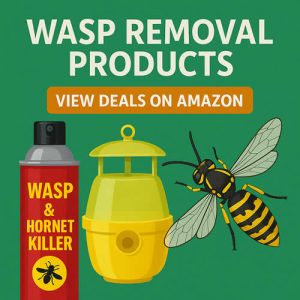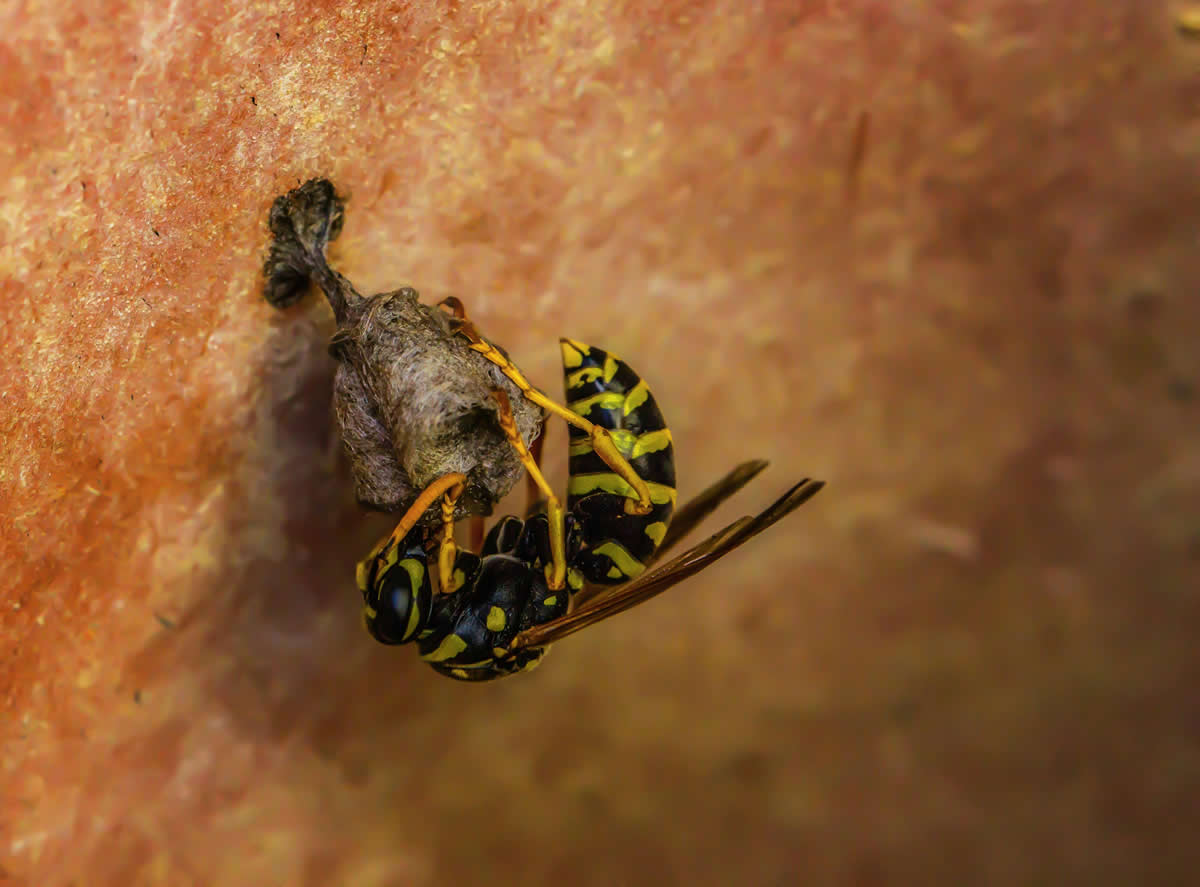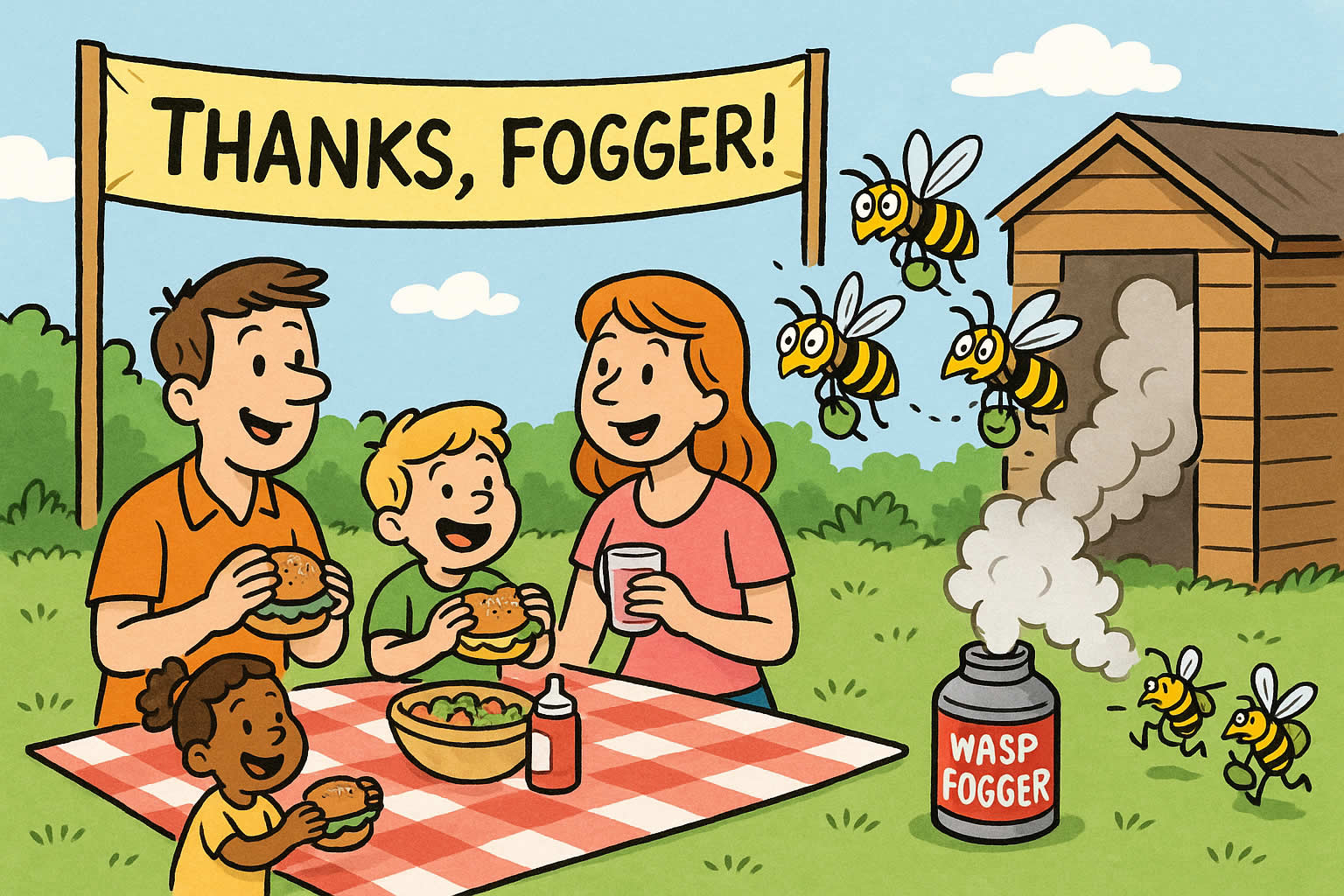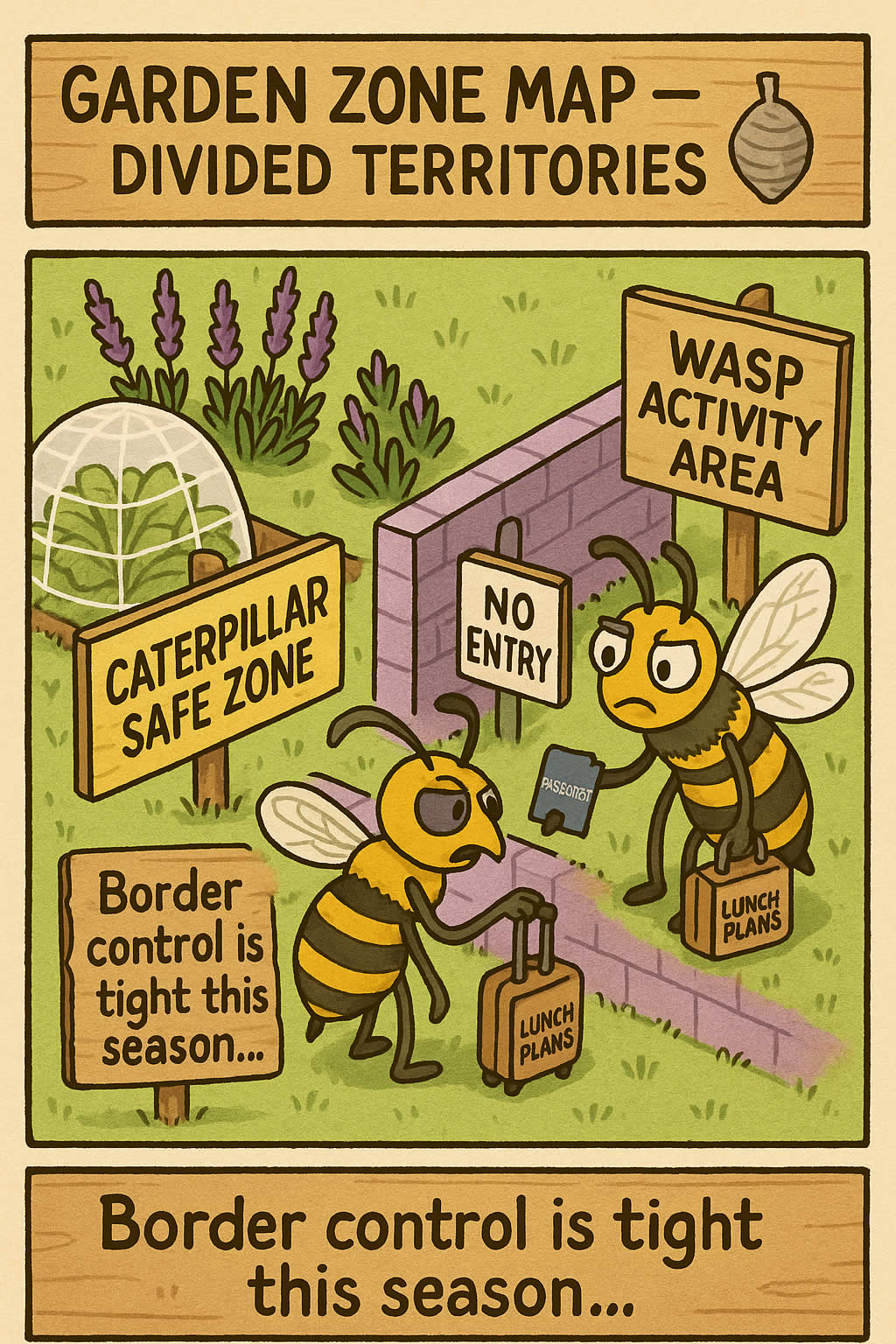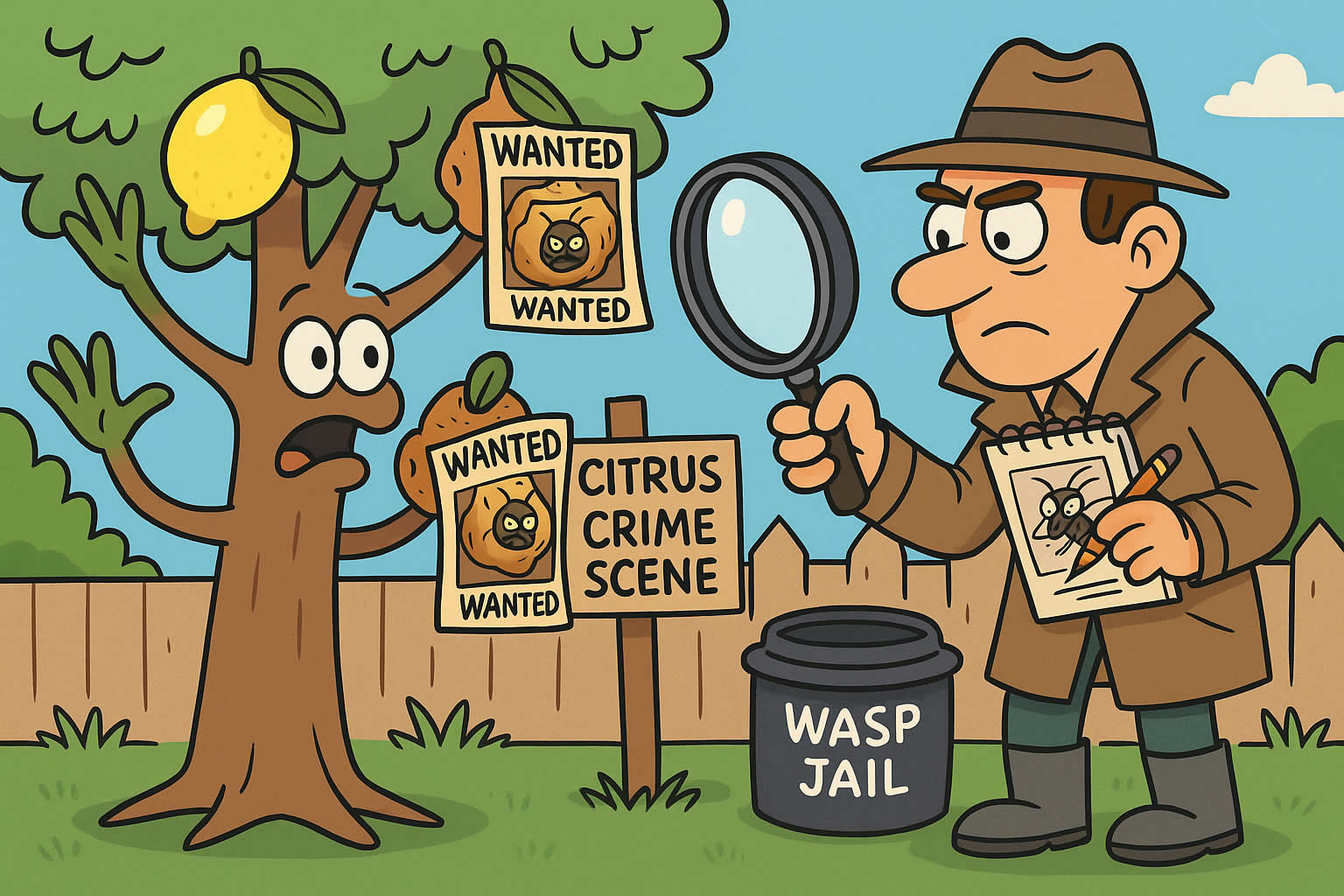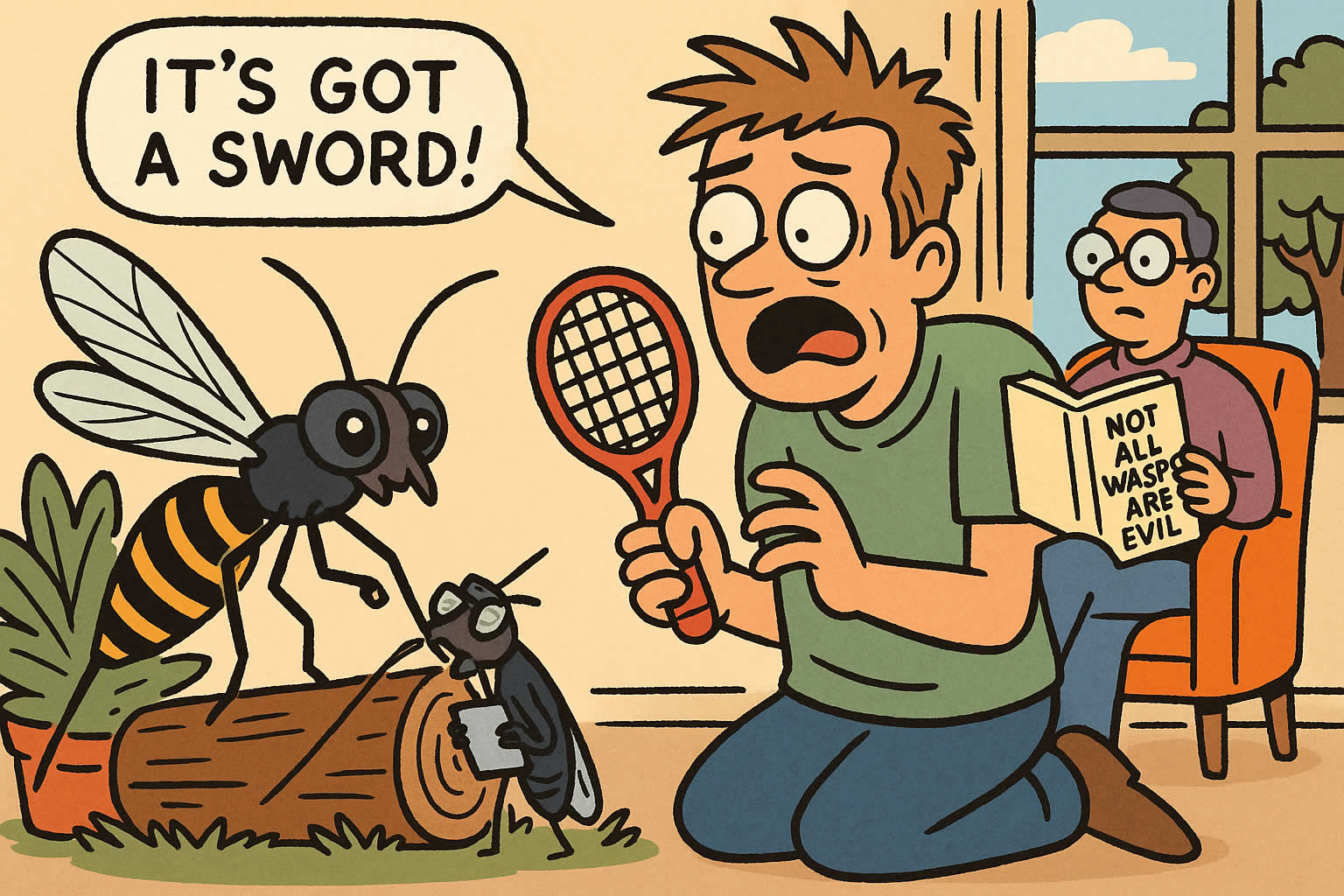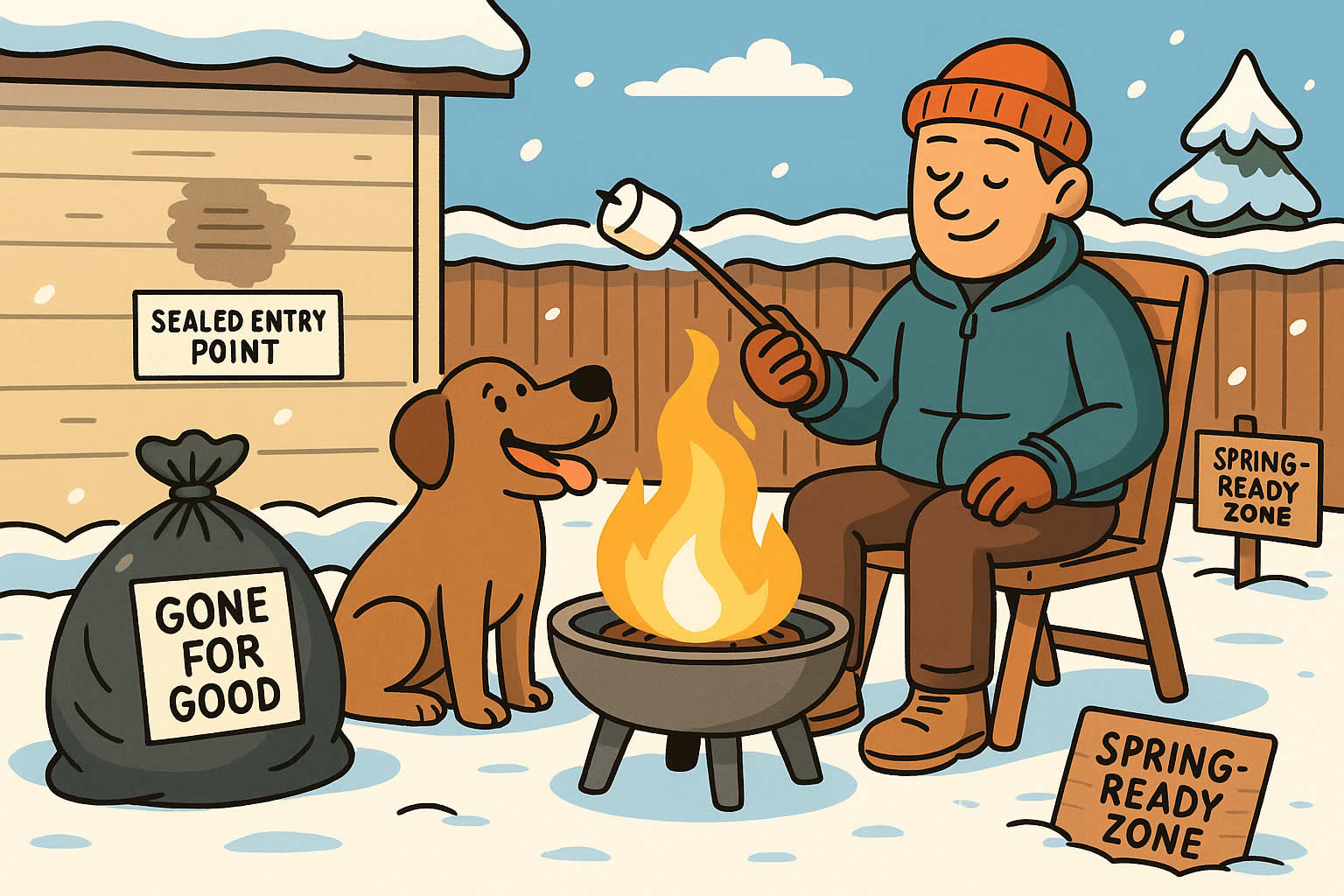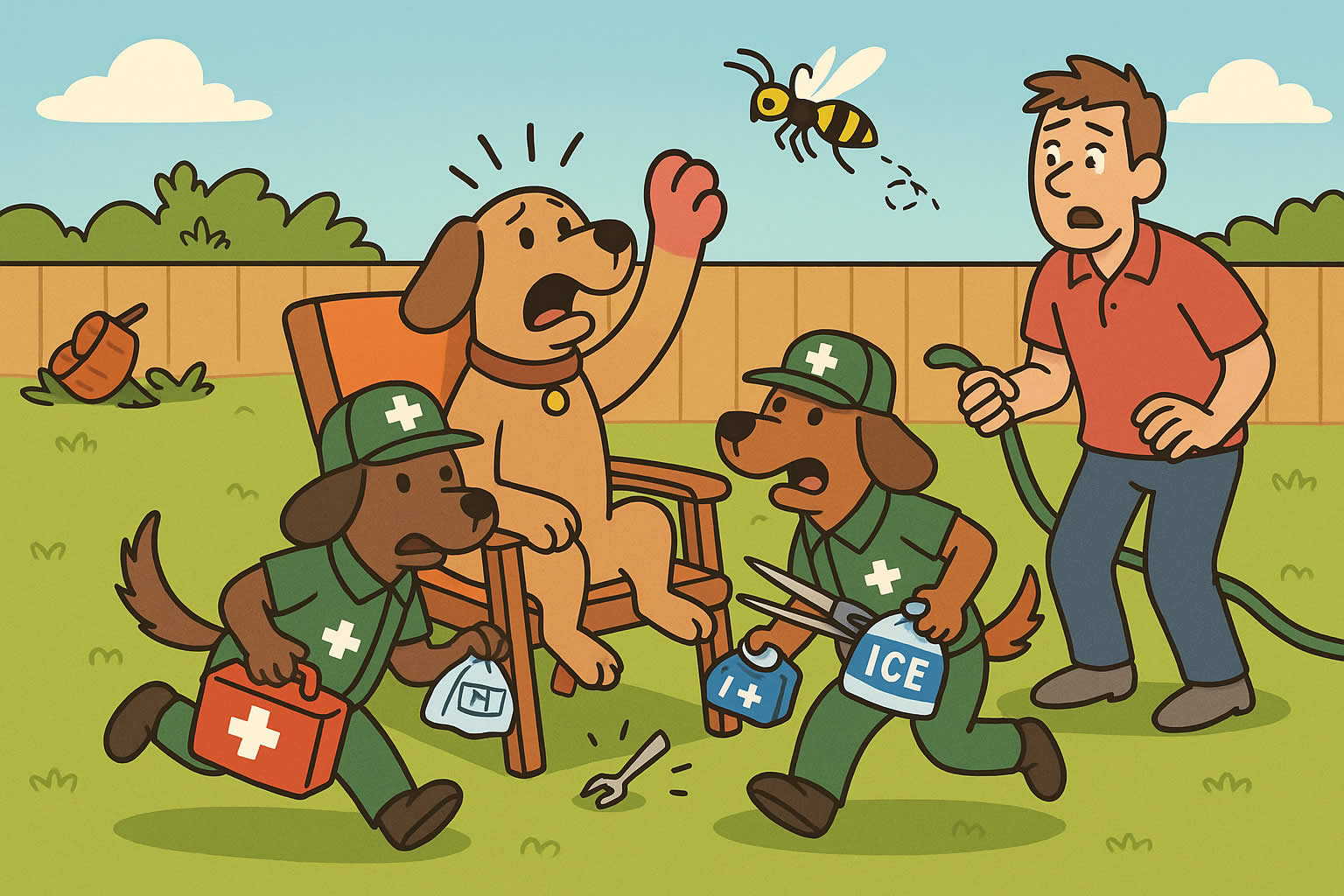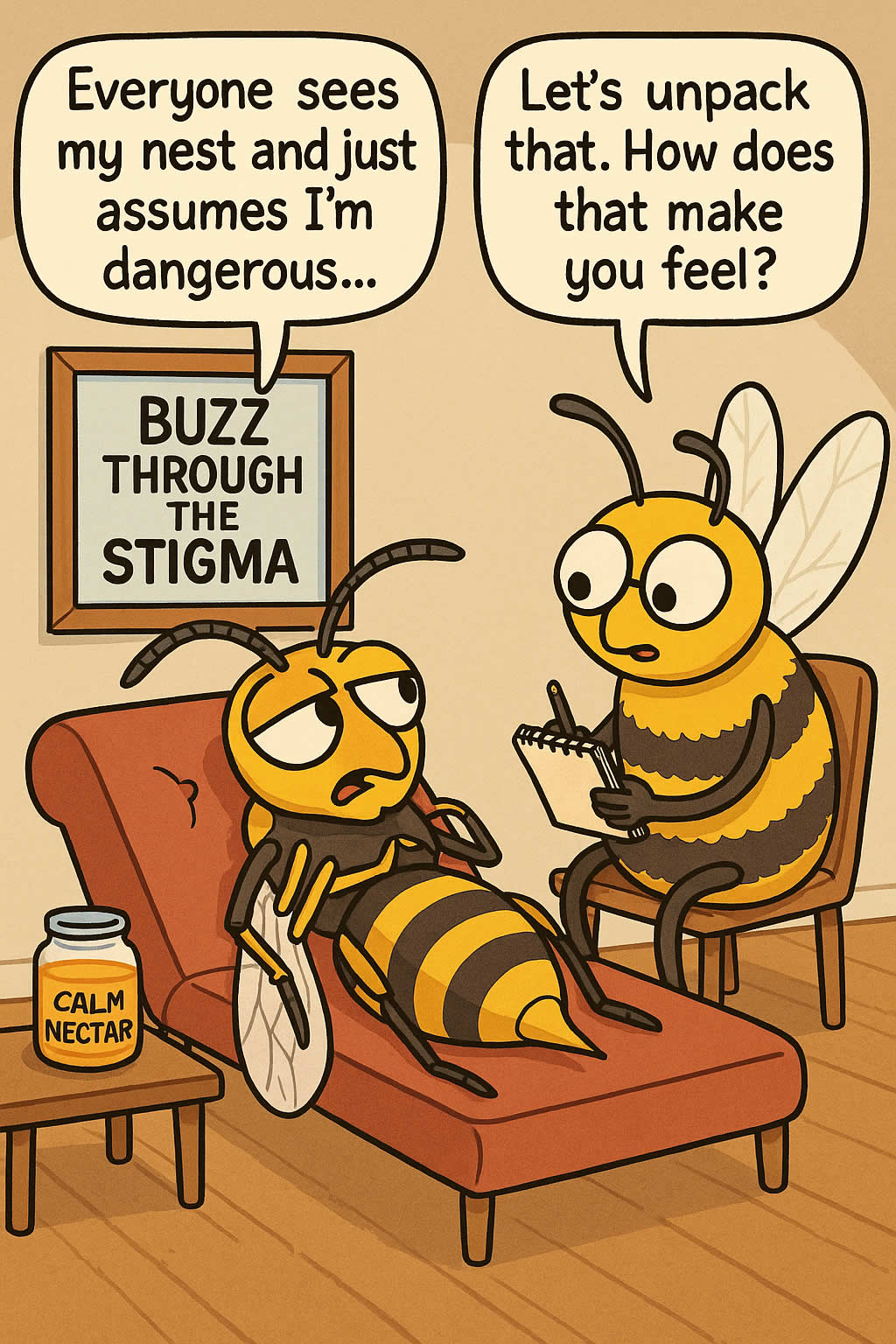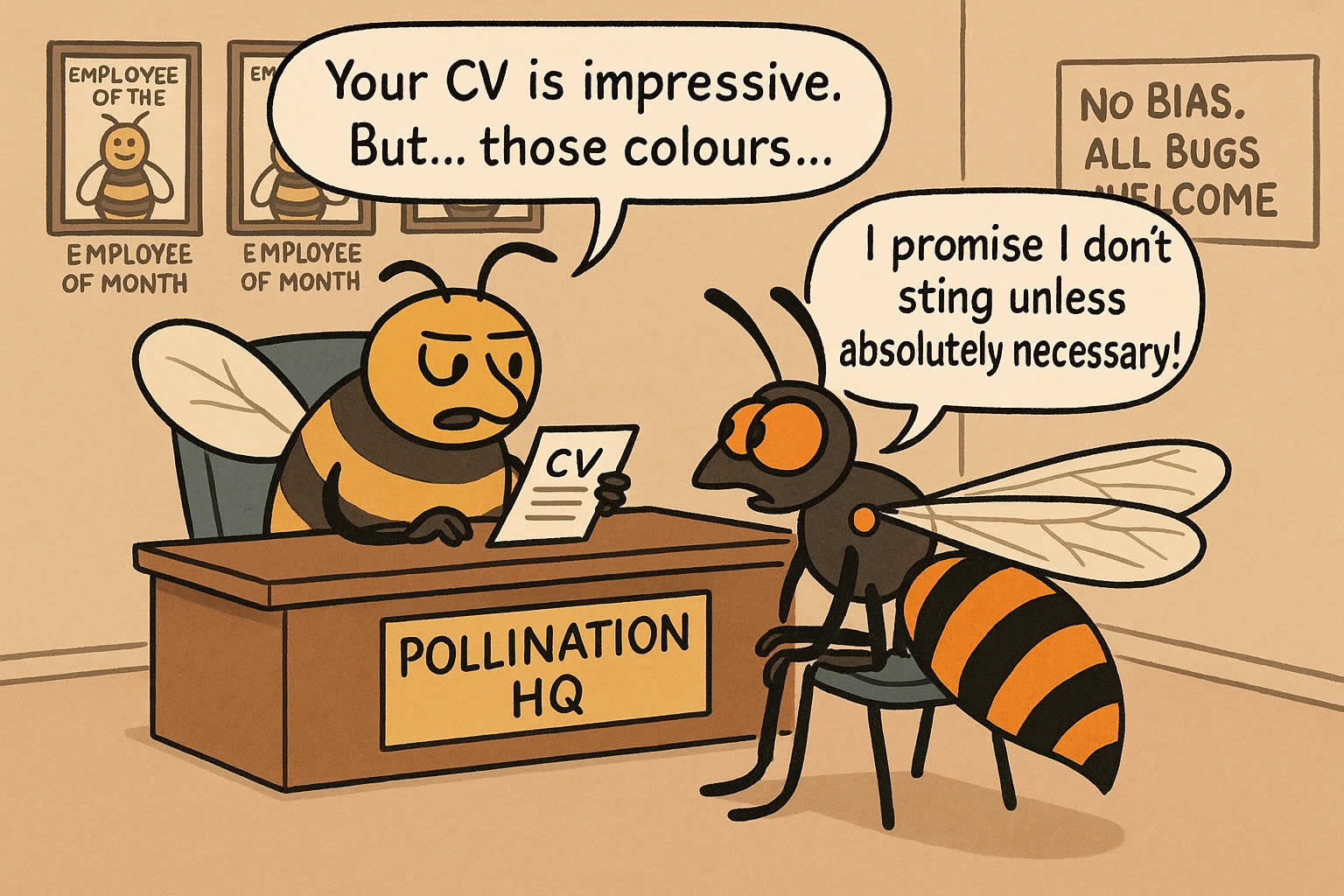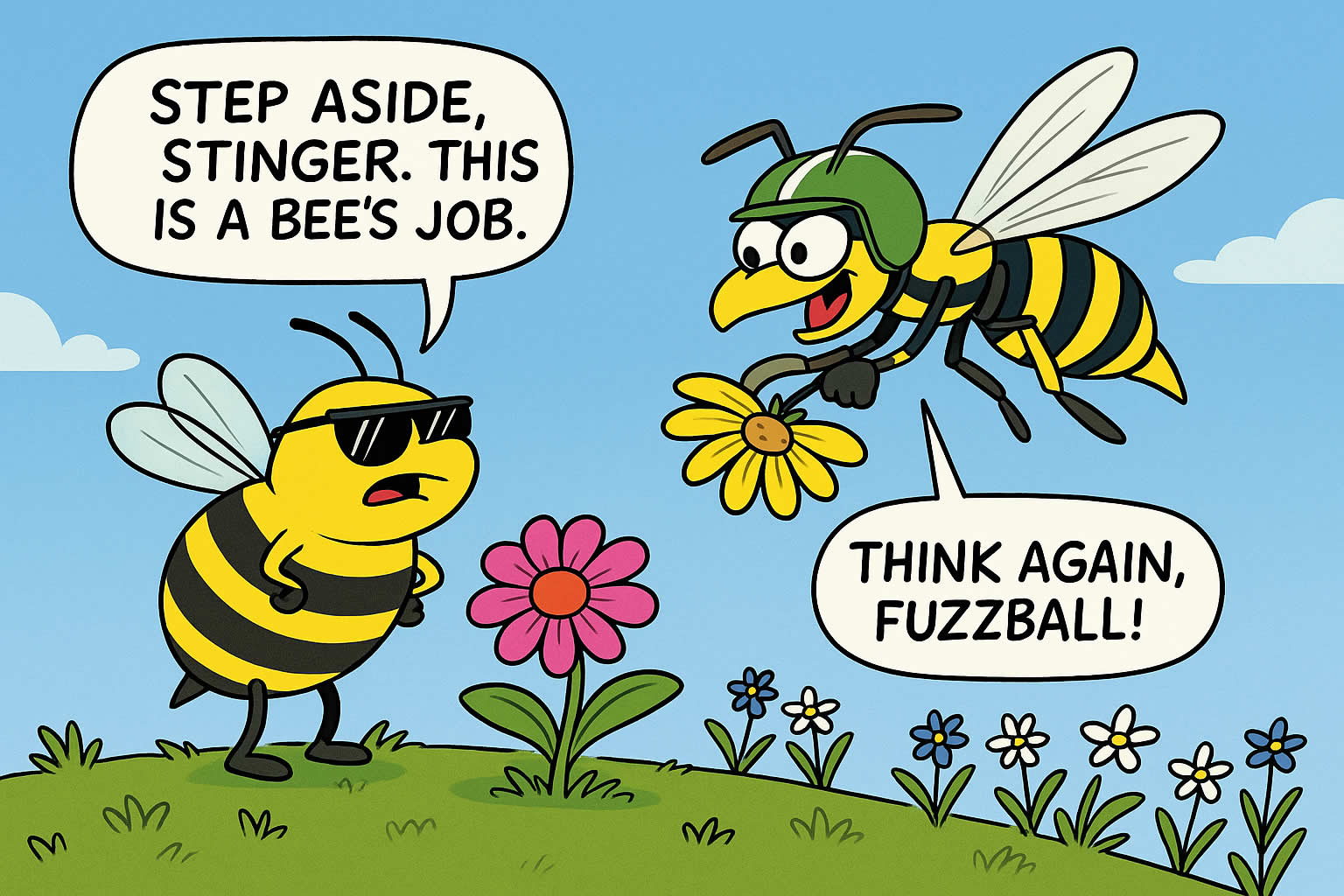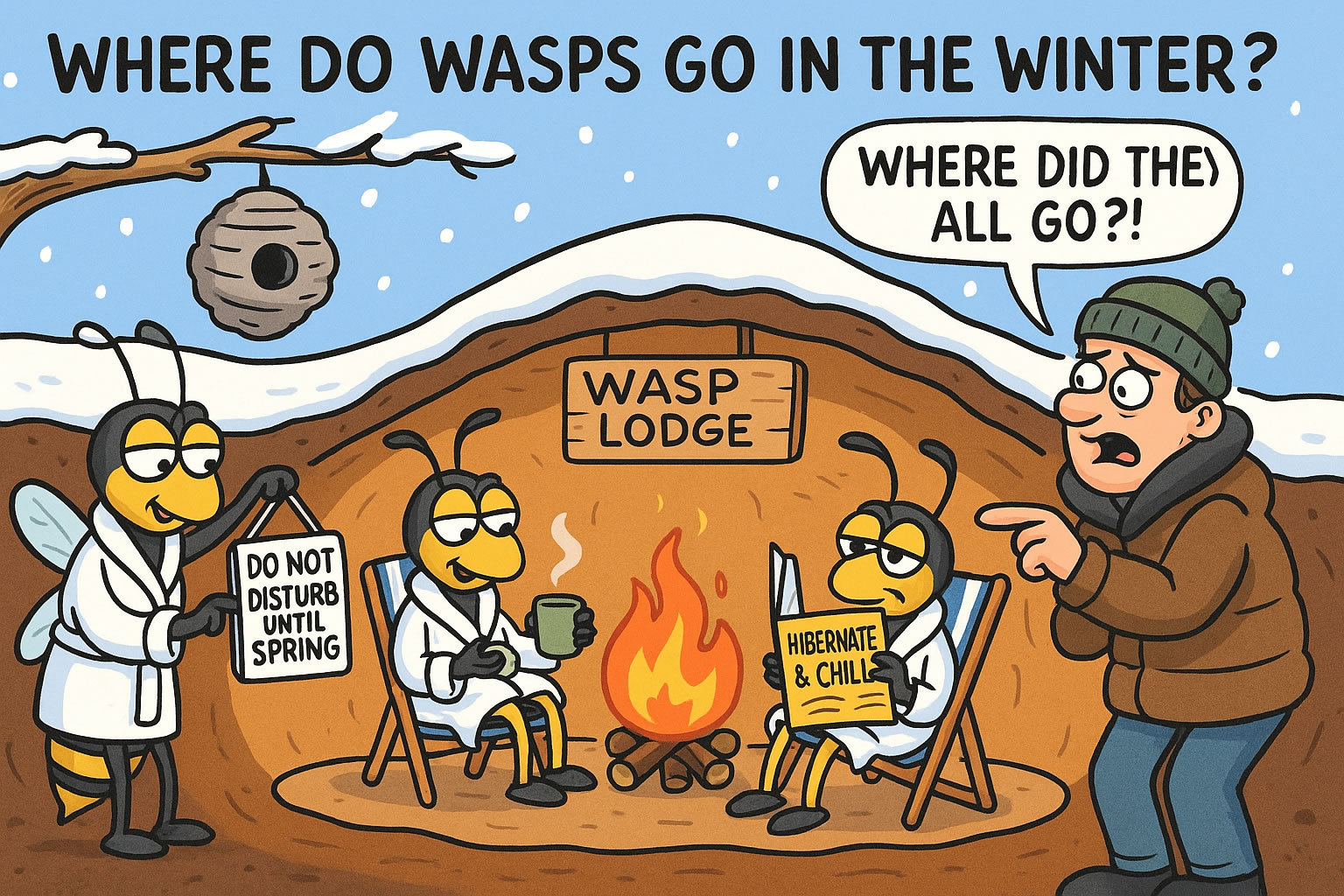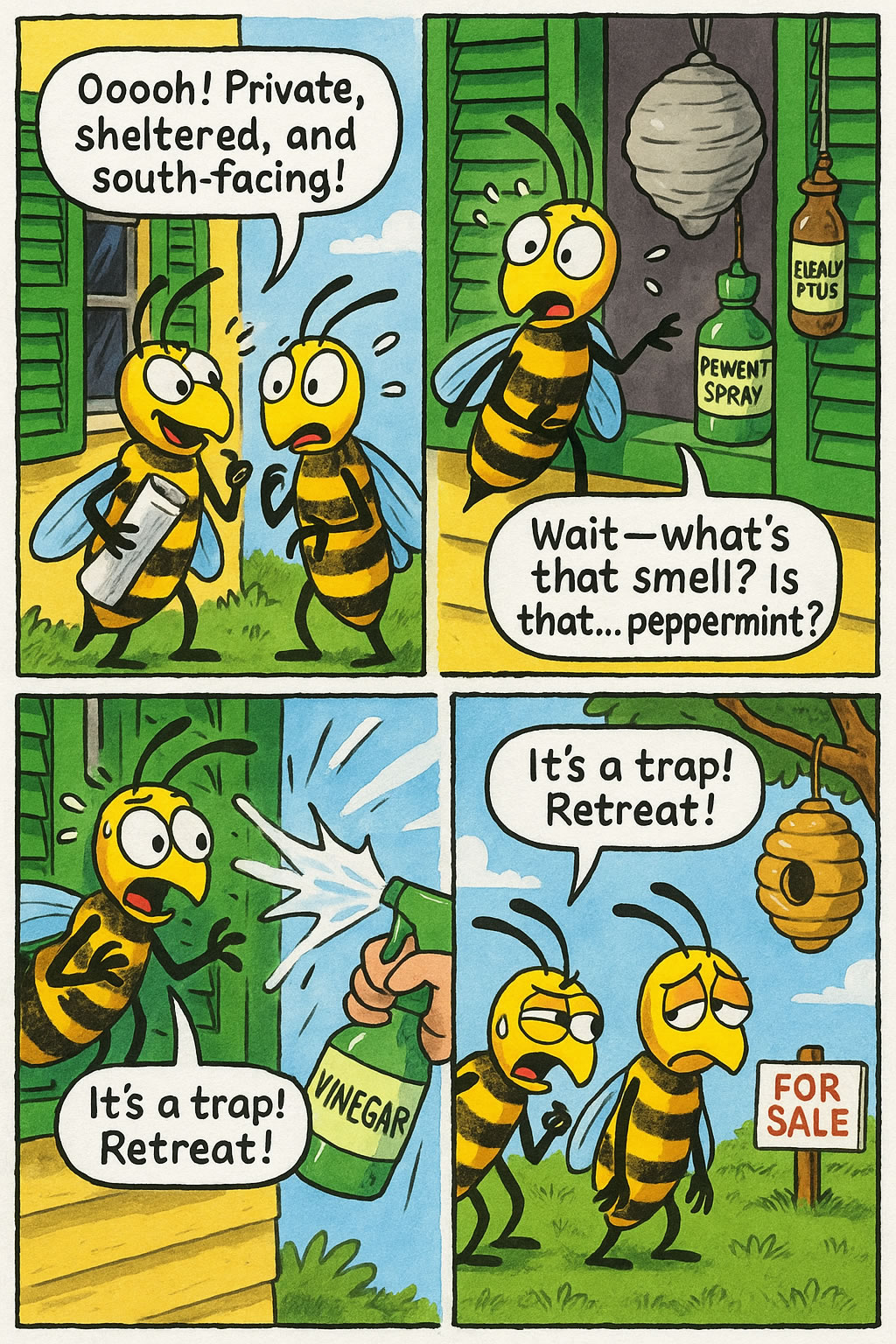Related Queries
ToggleAs the warmer months roll in, spending time outdoors can sometimes be interrupted by the unwelcome presence of wasps. These insects can be particularly bothersome, especially when you’re trying to enjoy a picnic or relax in your garden.
Fortunately, there are natural methods to deter wasps, and one of the most effective and readily available solutions is vinegar. In this guide, we will explore how vinegar can help you repel wasps, along with practical tips and methods to keep your outdoor spaces wasp-free.
Understanding Wasps and Their Behaviour
Before diving into how vinegar can repel wasps, it’s essential to understand a bit about these insects. Wasps are attracted to sweet scents, protein-rich foods, and certain flowers. They can become particularly aggressive when they feel threatened, making it crucial to approach any repellent methods with caution.
What Attracts Wasps?
- Sweet Foods: Wasps are drawn to sugary substances, making outdoor meals a prime target for their attention.
- Protein Sources: Foods like meat and fish can also attract them, especially during summer barbecues.
- Nectar: Many wasps are attracted to flowering plants and can often be seen hovering around them.
By recognizing what attracts wasps, you can take proactive steps to minimize their presence in your outdoor spaces.
The Role of Vinegar in Wasp Repellent
Vinegar, particularly apple cider vinegar and white vinegar, is a natural deterrent for wasps. Its strong smell masks the scents that attract these insects, making your outdoor area less appealing to them.
How Does Vinegar Work?
- Disruption of Scents: The pungent aroma of vinegar can mask sweeter smells that lure wasps.
- Acidity: While vinegar is not a lethal agent for wasps, its acidity can be irritating to them, encouraging them to move away from treated areas.
Making a Vinegar-Based Wasp Repellent Spray
Creating a vinegar-based wasp repellent is simple and requires just a few ingredients. Here’s how you can make your own spray to deter these pesky insects.
Ingredients Needed
- Vinegar: Either apple cider vinegar or white vinegar works well.
- Water: To dilute the vinegar.
- Dish Soap: This helps the mixture adhere to surfaces and can trap wasps if sprayed directly on them.
Step-by-Step Instructions
- Mix the Solution: In a spray bottle, combine equal parts vinegar and water. For added effectiveness, you can include a few drops of dish soap.
- Shake Well: Ensure the mixture is well combined before use.
- Application: Spray around areas where you frequently see wasps, such as patios, doorways, and outdoor furniture. It’s best to apply this mixture in the evening or early morning when wasps are less active.
Important Safety Note
When dealing with wasps, it’s crucial to wear protective clothing to avoid stings. Long sleeves, gloves, and closed shoes can help keep you safe while applying the repellent.
Creating a Wasp Trap Using Vinegar
If you prefer a more proactive approach, you can create a trap using vinegar that will catch and eliminate wasps.
Materials Needed
- A 2-litre plastic soda bottle
- Scissors or a utility knife
- Apple cider vinegar
- Sugar
- Water
- Dish soap
Step-by-Step Instructions
- Prepare the Bottle: Cut the top off the soda bottle just below the curve. Invert the top section and place it back into the bottom half.
- Make the Bait: In a bowl, mix equal parts apple cider vinegar and water, add a couple of tablespoons of sugar, and a few drops of dish soap. The sugar will attract the wasps, while the soap will trap them.
- Fill the Trap: Pour this mixture into the bottom half of the bottle, ensuring that the inverted top does not touch the liquid.
- Placement: Hang the trap away from high-traffic areas, ideally at least 10 feet away from where people gather. Check the trap regularly and replace the mixture as needed.
Alternative Natural Wasp Deterrents
While vinegar is an excellent option, there are other natural substances you can use to keep wasps at bay.
Essential Oils
Certain essential oils, like peppermint or eucalyptus, can repel wasps. Mixing a few drops of these oils with vinegar or water in a spray bottle can create an effective natural repellent.
Lemongrass
Lemongrass has a strong scent that is unappealing to wasps. You can plant it around your garden or make a spray using lemongrass essential oil mixed with water.
Preventing Wasp Nests
While repelling wasps is essential, preventing them from nesting near your home is equally crucial. Here are some tips to keep wasps from setting up camp:
- Seal Entry Points: Check for gaps around windows, doors, and eaves, and seal them to prevent wasps from entering your home.
- Remove Food Sources: Keep outdoor dining areas clean, and store food in airtight containers. Dispose of rubbish properly to avoid attracting wasps.
- Regular Inspections: Periodically check your property for signs of wasp nests, particularly in hidden areas like under eaves or in sheds.
When to Seek Pest Control Professional Help
While vinegar and other natural methods can be effective, there are times when it’s best to call in the professionals. If you discover a large wasp nest or if someone in your household is allergic to wasp stings, it’s advisable to seek help from a pest control service. They can safely remove the nest and provide further advice on preventing future infestations.
Are you looking for pest control in Suffolk? Get in touch with us and a local pest removal company will be in touch.
Our Final Say!
Using vinegar to repel wasps is a simple, effective, and environmentally friendly approach to managing these pesky insects. By understanding their behaviour and employing natural deterrents, you can enjoy your outdoor spaces without the worry of wasp encounters.
Remember to take precautions when dealing with wasps, and don’t hesitate to reach out for professional assistance if needed. With these tips, you’ll be well-equipped to keep wasps at bay this summer.
